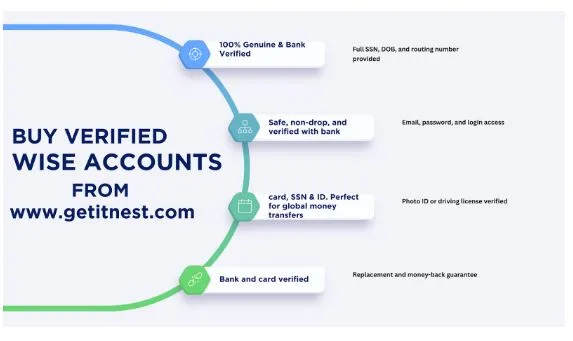What Every Business Should Ask Before Choosing an EOR in Mexico
Assessing Legal and Compliance Expertise
When looking for an Employer of Record (EOR) in Mexico, it’s vital to check how well they know the local rules. Mexico has complex labor laws, tax rules, and benefit requirements that change often. A good EOR should have a team that stays updated on these laws. They need to show they can handle all the legal details correctly. Before you sign any contract, it’s smart to review key considerations outlined in Questions to ask before hiring EOR in Mexico, which highlights what to evaluate when choosing the right partner for compliance and payroll management.
Their knowledge directly impacts your company’s safety from fines and legal issues. You want a provider that actively monitors changes and can explain them clearly. This isn’t just about knowing the laws; it’s about applying them accurately to your specific situation. A strong grasp of legal and compliance matters is non-negotiable.
Navigating Mexican Labor Laws and Regulations
Mexico’s labor laws can be tricky. Things like mandatory benefits, vacation time, and termination procedures have specific rules. An EOR must be able to manage these aspects without errors. This includes things like profit-sharing (PTU) and correctly calculating severance pay. They should also be registered with REPSE, which is a requirement under recent outsourcing reforms.
It’s important that the EOR acts as the direct legal employer. Using subcontractors can create compliance risks. They should also be able to guide you through dismissals to avoid penalties. Understanding how they handle employee disputes and unjust termination claims is also key.
Ensuring Adherence to Tax and Benefit Legislation
Paying taxes and providing benefits correctly is a big part of hiring in Mexico. Your EOR needs to handle income tax deductions (ISR) and remit them to SAT. They also need to manage state payroll taxes (ISN), which can differ by region. This requires careful calculation and timely payment.
Beyond taxes, they must administer statutory benefits like paid vacations, bonuses, and healthcare. They also need to manage paid time off (PTO) policies in line with current regulations. Ensuring all these are handled accurately protects your employees and your business.
Evaluating Provider Reputation and Reliability
When picking an Employer of Record (EOR) in Mexico, you can’t just take their word for it. You need to check out what others say and if they’ve actually done good work before. A solid reputation means they’re likely to give you good service and keep things stable.
Researching Client Feedback and Testimonials
Look for reviews and comments from companies that have already used the EOR. What are people saying about their experience? Did they get what they paid for? Positive feedback and happy clients are usually a good sign. It shows the EOR knows what they’re doing and treats their clients well. Don’t just look at the star ratings; read the actual comments to get a feel for their service quality.
Investigating Industry Standing and Awards
Has the EOR won any awards or gotten recognition in their field? Awards can show that other experts think highly of their work. It’s a way to see if they’re considered a top player. While not the only thing to consider, it adds another layer to their credibility. It suggests they’re committed to doing a good job and staying ahead.
Verifying a Proven Track Record in Mexico
This is super important. You need an EOR that has a history of success specifically in Mexico. Ask for examples of companies they’ve worked with there, especially in your industry. A proven track record means they understand the local rules and how to get things done right. It’s about knowing they can handle the complexities of the Mexican market without causing you headaches. A reliable EOR will have plenty of proof of their work in Mexico.
Analyzing Cost Structure and Transparency
When looking at an Employer of Record (EOR) in Mexico, the money side of things needs to be crystal clear. You don’t want any surprises popping up later that mess with your budget. Understanding exactly what you’re paying for is key to making sure this partnership is a good financial move for your business.
Requesting a Complete Breakdown of Expenditures
It’s important to get a full picture of all the costs involved. This means asking for a detailed list of everything – not just the main fee. Think about base charges, any extra services you might need, and definitely ask about potential add-ons that aren’t immediately obvious. A good EOR will lay this all out for you without you having to dig for it. This level of detail helps you see the true cost of their services and compare them fairly.
Comparing Different Pricing Models
EOR providers use various ways to charge. Some might have a flat fee per employee, others a percentage of salary, and some offer tiered pricing. It’s smart to look at a few different providers and see how their pricing models stack up. What looks cheaper on the surface might end up costing more once all the services are factored in. The goal is to find a model that fits your company’s needs and budget best.
Identifying Potential Hidden Fees
This is where transparency really matters. You need to ask directly about any hidden charges, setup fees, or deposits. A truly transparent EOR will have no problem explaining their fee structure and assuring you there are no surprises. If a provider seems hesitant to discuss this or their pricing is vague, it’s a red flag. Understanding the full cost structure upfront prevents budget overruns and builds trust.
Assessing Local Expertise and Cultural Understanding
Understanding Regional Legal Nuances
Mexico’s legal framework isn’t a monolith. Different states and even cities can have specific employment rules. A good Employer of Record (EOR) knows these differences. They understand how local laws affect hiring, benefits, and termination. This local knowledge is key to staying compliant.
An EOR with deep roots in Mexico can spot potential issues before they become problems. They’ve seen how these nuances play out in real-world situations. This practical experience is hard to replicate. It means fewer surprises and a smoother operation for your business.
Relying on an EOR that truly grasps regional legal subtleties protects your company from costly mistakes. It shows you’re serious about operating correctly.
Leveraging Local Market Knowledge
Beyond just laws, an EOR should understand the local job market. This includes salary expectations, typical benefits packages, and what attracts talent in specific regions. They know the hiring trends and can advise on competitive compensation. This market knowledge helps you find and keep good people.
An EOR’s network and understanding of local business practices are also important. They can help you build a strong team faster. They know where to look for talent and how to approach potential hires effectively. This insight is invaluable for growth.
Bridging Cultural Differences in the Workplace
Corporate culture varies greatly. Mexico has its own set of workplace norms, communication styles, and expectations. An EOR with cultural awareness can help your company adapt. They can guide you on how to manage teams effectively and build a positive work environment.
Understanding these cultural aspects prevents misunderstandings. It helps create a workplace where everyone feels respected and understood. This leads to better employee morale and productivity. A good EOR acts as a cultural bridge.
Clarifying Operational Scope and Service Offerings
When looking at an Employer of Record (EOR) in Mexico, it’s not just about payroll. You need to know exactly what they do and what they don’t. Think about it like hiring a contractor for a big project; you need a clear list of tasks they’ll handle. This helps avoid surprises down the road and makes sure all your bases are covered.
Defining the Scope of HR and Payroll Services
Your EOR should handle more than just cutting checks. They need to manage payroll processing, including taxes and social security contributions, accurately and on time. Beyond that, look at their HR support. Do they help with employee contracts, time-off tracking, and general HR queries? A good EOR provides a solid HR framework, making your life easier.
Understanding Onboarding and Offboarding Processes
How does the EOR bring new hires into the fold? A smooth onboarding process is key to employee satisfaction and productivity. Ask about the steps involved, from contract signing to setting up benefits. Similarly, understand their offboarding procedures. This includes handling terminations, final pay, and any legal requirements. A well-defined process for both onboarding and offboarding is critical for compliance and employee experience.
Confirming Support for Different Worker Types
Not all employees are the same. Does your EOR support full-time workers, part-time staff, or even contractors if needed? Some EORs specialize in certain types of employment. Make sure their services align with your workforce structure. This ensures that all your employees are managed correctly according to Mexican labor laws, regardless of their employment status. Understanding the full operational scope is vital for a successful partnership.
Determining Scalability and Future Transition Support
Evaluating Service Scalability for Growth
When your business grows, your EOR needs will change. It’s important to pick a provider that can grow with you. Think about how many employees you plan to add in the next year or two. Does the EOR have the systems in place to handle more people without a hitch? Some providers might seem great for a small team but struggle when you need to hire dozens more. Look for an EOR that clearly outlines how their services scale. This means checking if they can handle increased payroll volume, more complex benefits administration, and a larger workforce without service quality dropping. A good EOR will have a clear plan for scaling, not just hope it works out.
Consider how the EOR handles different types of growth. Are you expanding into new regions, or just hiring more people in Mexico? The provider should be able to support both scenarios. They should have the infrastructure and local knowledge to manage a growing team efficiently. This includes having enough support staff to handle more inquiries and a robust platform that doesn’t slow down under load. It’s about finding a partner that’s ready for your future success, not one that will become a bottleneck.
Understanding Support for Transitioning to Own Entity
Eventually, your business might reach a size where setting up your own legal entity in Mexico makes sense. This is a big step, and your EOR should be able to help you with it. Ask them about their process for supporting this transition. Do they offer guidance on the legal steps involved? Can they help with the handover of employees and compliance responsibilities? A forward-thinking EOR will see this as a natural progression and offer support, not see it as losing a client. They should be able to provide advice on the best way to structure your new entity and ensure a smooth transfer of operations.
It’s not just about the legalities; it’s also about the practicalities. How will they help you transfer payroll, benefits, and employee records? A provider that has experience with these transitions can make the process much less stressful. They should be able to explain the timelines, costs, and potential challenges involved. This kind of support shows they are invested in your long-term success, not just their short-term revenue.
Assessing Industry-Specific Expertise
While many EORs claim to serve all industries, some have a deeper knowledge of specific sectors. If your business operates in a niche industry, like tech or manufacturing, it’s worth finding an EOR that understands its unique HR and compliance needs. For example, certain industries have specific regulations regarding employee benefits, working hours, or safety protocols. An EOR with industry-specific knowledge can proactively address these issues. They’ll be better equipped to handle payroll complexities, benefits administration, and compliance requirements that are particular to your field. This specialized insight can prevent costly mistakes and ensure your operations run smoothly.
Think about the specific challenges your industry faces in Mexico. Does your business require specialized equipment or certifications for employees? Are there particular types of contracts or benefits that are standard in your sector? An EOR that has worked with similar companies will already be familiar with these nuances. They can offer tailored advice and solutions that generic providers might miss. This focused approach to scalability and transition support is key for long-term stability.
Investigating Risk Management and Liability Protection
Confirming Direct Legal Employer Status
When selecting an Employer of Record (EOR) in Mexico, it’s vital to confirm they operate as the direct legal employer. This means the EOR, not a third-party partner or subcontractor, is the entity listed on employment contracts and responsible for all legal obligations. This direct relationship is key to mitigating risks and ensuring compliance with Mexican labor laws. A provider that uses subcontractors can introduce layers of complexity and potential compliance gaps, leaving your business exposed.
The EOR must be the sole legal employer to offer true protection. This structure simplifies accountability and ensures that all statutory requirements are met directly by the EOR. Without this direct legal employer status, your company could face unexpected liabilities and legal challenges. It’s a foundational element for secure operations in Mexico.
Understanding How Compliance Errors Are Handled
No EOR is perfect, so understanding how they manage and rectify compliance errors is crucial. Ask for their specific protocols when mistakes happen, such as incorrect payroll calculations or missed tax remittances. A reliable provider will have clear procedures for identifying, correcting, and communicating these errors to you promptly, along with steps to prevent recurrence. This transparency builds trust and demonstrates their commitment to ongoing compliance.
Look for a provider that takes ownership of errors and has a robust system for remediation. This includes how they handle potential fines or penalties levied by authorities. Their response to a compliance issue can reveal a lot about their operational integrity and dedication to protecting your business from undue risk. A proactive approach to error management is a strong indicator of a dependable partner.
Ensuring Protection Against Misclassification Risks
Misclassification of employees is a significant risk in Mexico, leading to substantial penalties, back taxes, and legal disputes. Your EOR must have a clear policy and proven process for correctly classifying all workers according to Mexican labor law. This includes distinguishing between employees and independent contractors, and adhering to regulations like the outsourcing reform (REPSE registration) which strictly limits subcontracting for core business activities.
- Employee Classification: Confirm the EOR only hires individuals as employees under Mexican law, avoiding contractor arrangements for roles that legally require employment.
- REPSE Compliance: Verify the EOR holds the necessary REPSE registration, demonstrating adherence to outsourcing regulations.
- Data Protection: Ensure they comply with Mexico’s data protection laws (LFPDPPP) when handling employee information.
A robust EOR will actively guide you on correct worker classification, preventing costly mistakes. They should also be able to demonstrate how they manage audits and inspections from Mexican authorities, showcasing their preparedness and experience in handling such situations.
Wrapping Up Your EOR Search in Mexico
So, picking the right Employer of Record in Mexico really matters. It’s not just about getting people on the payroll; it’s about making sure everything is done by the book, from labor laws to taxes. Getting this wrong can lead to some serious headaches, like fines or legal trouble. By asking the right questions and doing your homework, you can find a partner that truly understands the ins and outs of doing business in Mexico. This way, your company can focus on growing, not on worrying about compliance. It’s about finding that reliable collaborator who can help your business get off to a good start and keep moving forward smoothly.





